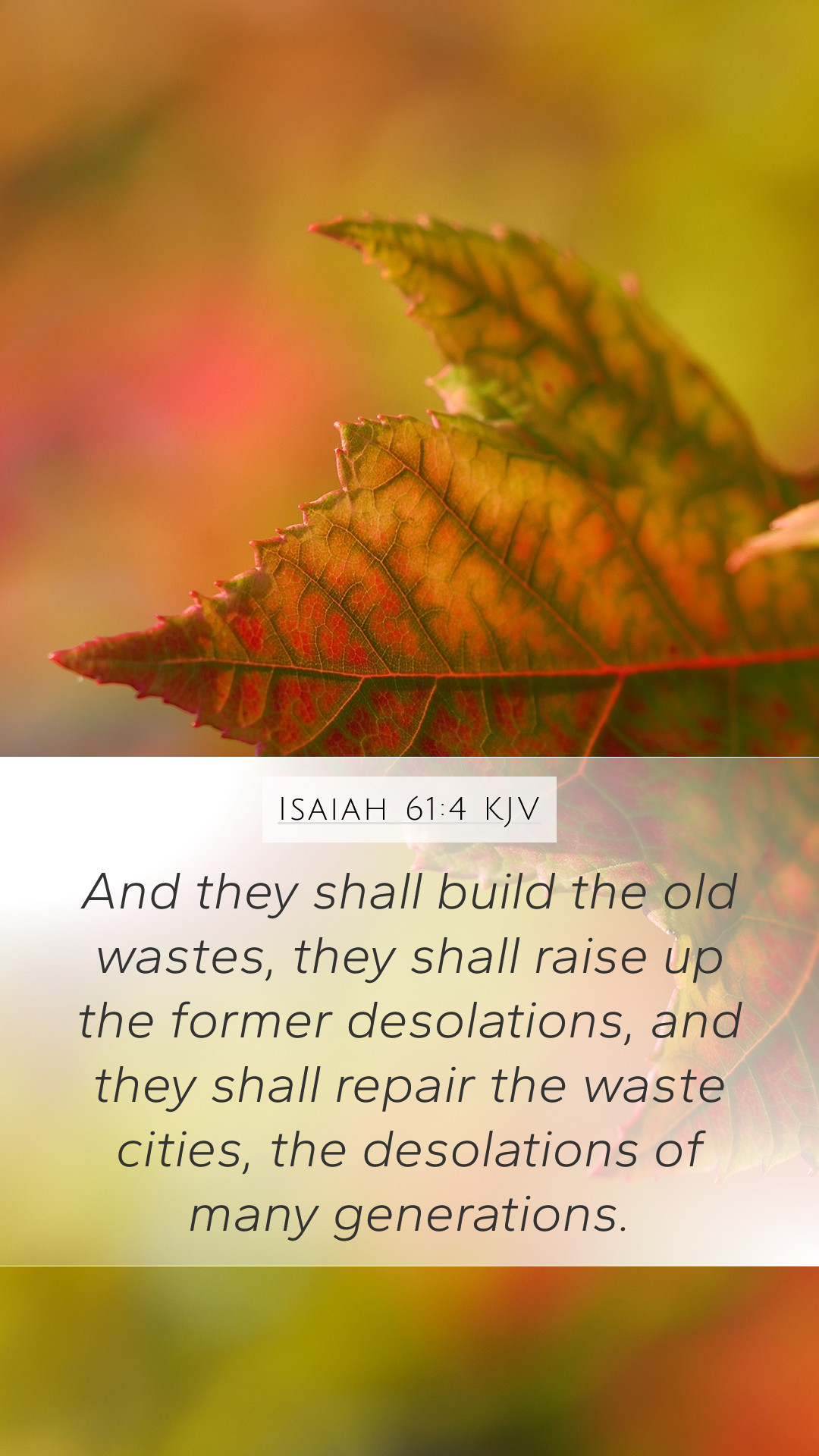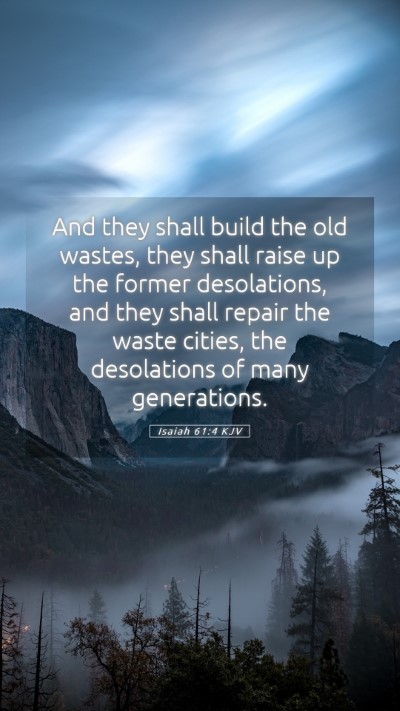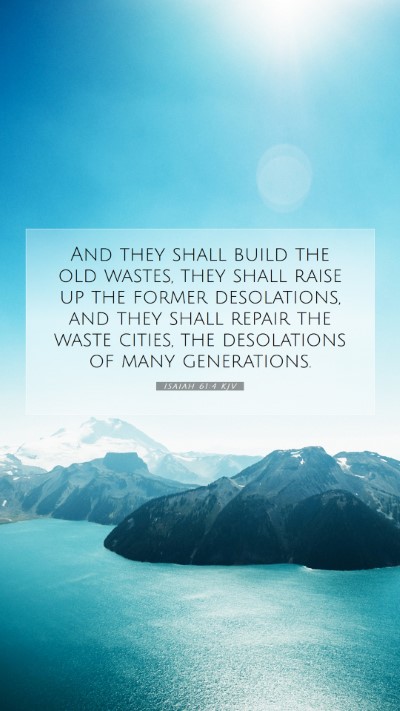Understanding Isaiah 61:4
Isaiah 61:4 states: "And they shall build the old waste places; they shall raise up the former desolations; and they shall repair the waste cities, the desolations of many generations."
This verse marks a significant prophetic declaration in the book of Isaiah, focusing on restoration and renewal, reflecting God's intention to revive not only the people but the land as well.
Bible Verse Meanings and Interpretations
The verse resonates with various biblical themes, primarily encompassing the concepts of restoration, renewal, and hope. Through a combined approach of Matthew Henry, Albert Barnes, and Adam Clarke, we can extract a deeper understanding of the verse's implications.
1. Restoration and Renewal
According to Matthew Henry, this verse highlights God's promise to restore what has been broken and lost. This restoration is not just physical but also spiritual, as the people return to their God, repairing their relationship with Him.
Adam Clarke elaborates on the idea that the “old waste places” symbolize both the literal cities in ruins and the spiritual desolation within the hearts of the people. The rebuilding signifies a divine intervention that renews both the land and its inhabitants.
2. The Role of the Redeemed
Albert Barnes emphasizes the active role of the redeemed in this restoration process. The phrase "they shall build" points to the involvement of those who receive God’s grace. This suggests a partnership between God and His people in the act of restoration.
The verse implies that the community of believers will participate in God’s plan, echoing a theme found throughout Scripture, that believers are called to partake in building God’s kingdom on earth.
3. Historical Context
Understanding the historical backdrop is crucial. At the time of Isaiah's writing, the Israelites were facing exile and devastation. The promise of restoration spoke profoundly to those living in despair. According to Matthew Henry, this prophecy provided hope to those who had witnessed destruction and longed for redemption.
4. Symbolism of Waste Places
Adam Clarke notes that the "waste places" represent not only physical destruction but also signify areas of life that may feel barren or hopeless. The rebuilding of these places can be analogously applied to individuals' lives where loss and despair have permeated.
Application of Isaiah 61:4
The scripture urges individuals today to recognize God's desire for renewal in their lives and communities. The promise of restoration is accessible to anyone who chooses to engage with God actively.
In practical terms, Bible study groups can reflect on how to apply this verse in their own contexts, focusing on community service, healing relationships, and building up spiritual waste places in their lives.
5. Bible Study Insights
- Participatory Restoration: Consider how you can contribute to the restoration of your community.
- Personal Renewal: Reflect on areas in your life that need God's touch for restoration.
- Collective Engagement: Join online Bible study sessions to explore deeper meanings together.
6. Related Bible Cross References
- Nehemiah 2:17 - The rebuilding of Jerusalem's walls
- Isaiah 58:12 - Repairer of the breach
- Joel 2:25 - Restoration of what the locusts have eaten
Conclusion
Isaiah 61:4 serves as a timeless reminder of God’s commitment to restoration and healing. By engaging with the scriptures, we can understand the depths of such verses and their application in contemporary life. Through collaborative Bible study tools and group discussions, we can further delve into this prophetic message, ensuring it resonates in our daily actions and spiritual journeys.


